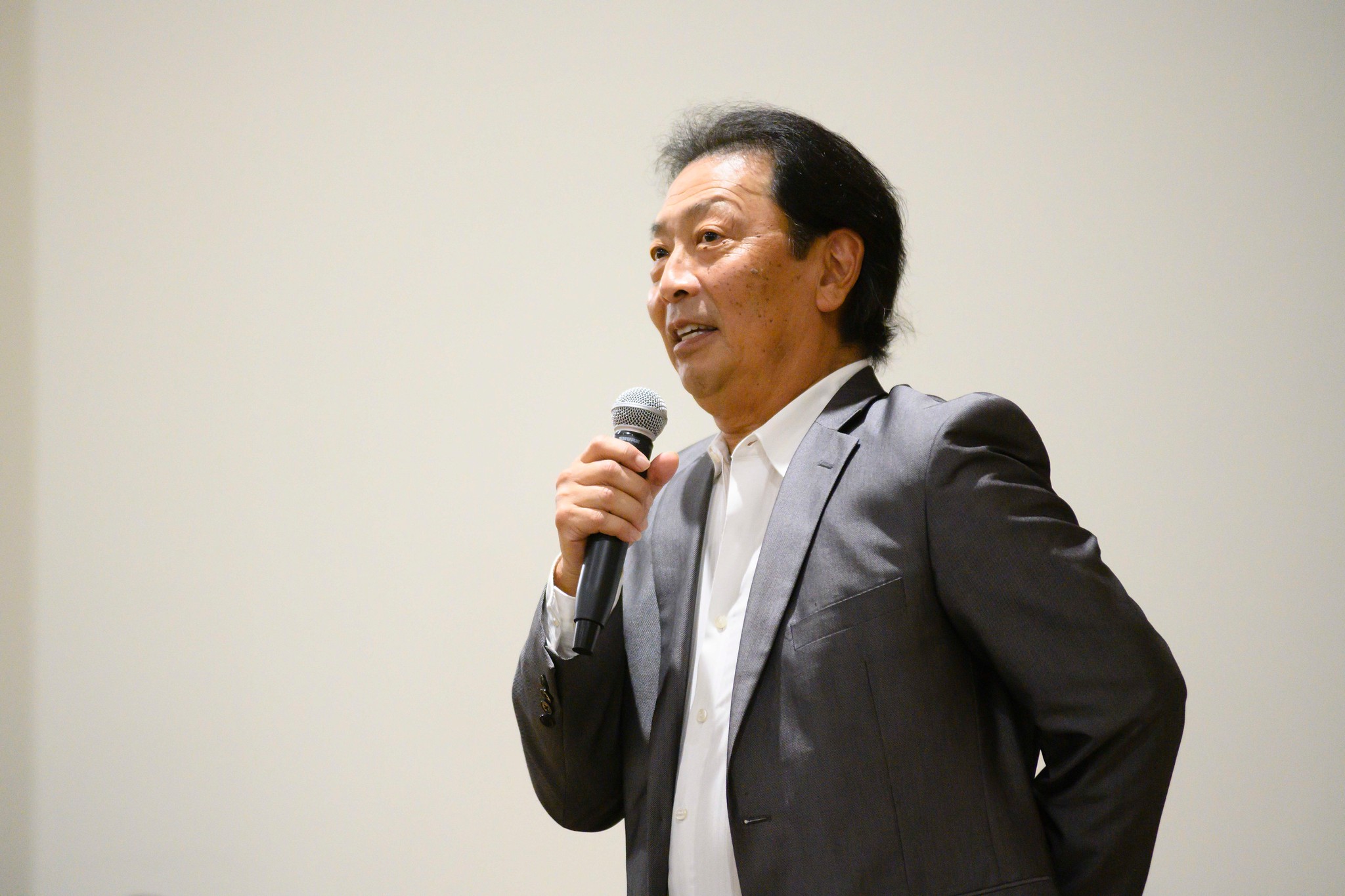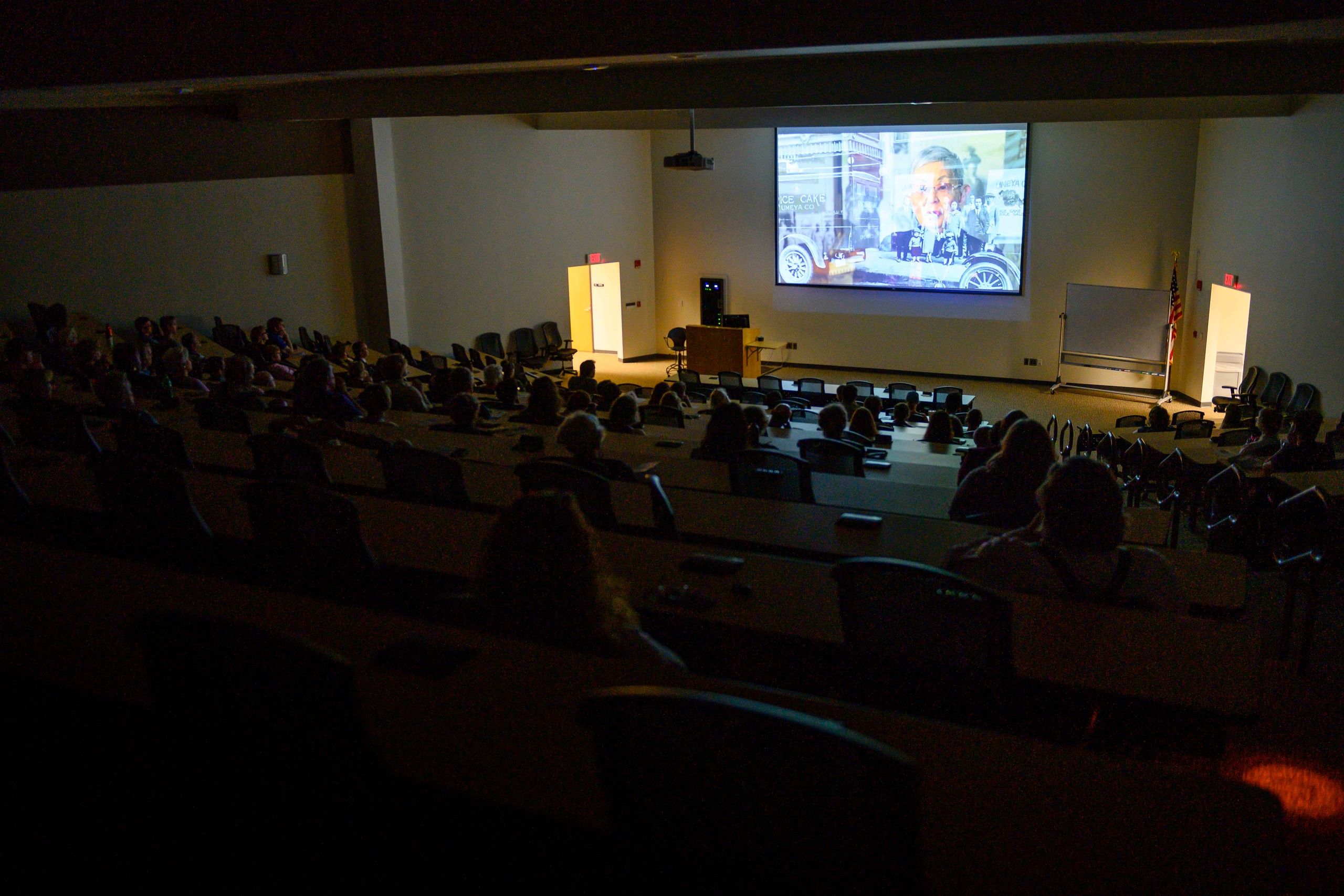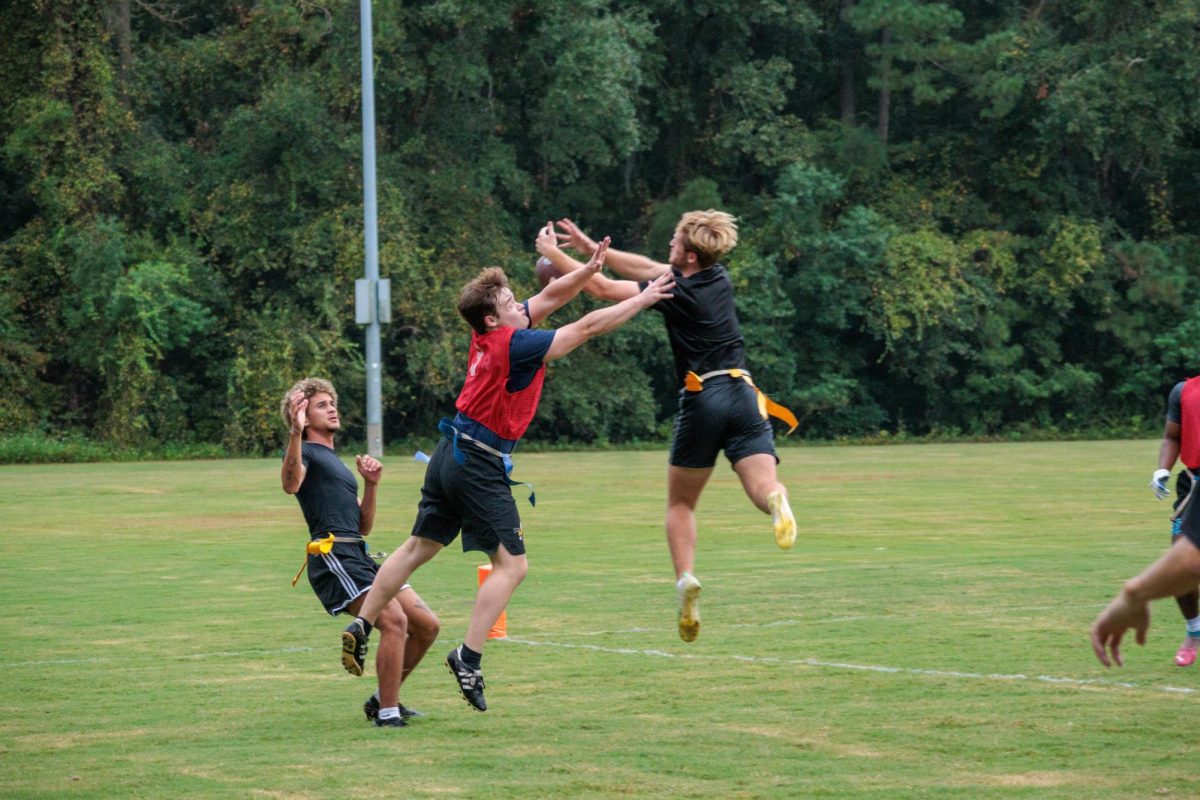“Our Lost Years” Documentary Screening

Rebecca Munday, Staff Writer
“I wanted to do a film that was told by the people who were there or their families,” said Lane Nishikawa, the writer and director of “Our Lost Years,” a film about Japanese internment camps during World War II.
The film made its east coast premiere as part of the 4th annual Mark Finlay Memorial Lecture on Sept. 26 at the Armstrong Center.
Mark Finlay, who passed away in 2013, served as the assistant dean in the College of Liberal Arts at Armstrong State University and started the university’s honors program.
“Our Lost Years” is a documentary about life in Japanese internment camps for the 120,000 Japanese and Japanese Americans in the 1940s, as well as their struggle to gain social acceptance after they were released. The film commemorates the 75th anniversary of the signing of Executive Order 9066, which authorized the internment camps, and the 30th anniversary of the Civil Liberties Act of 1988, which granted reparations to those interned.
Before the film played, the Associate Dean of the College of Arts and Humanities Dr. Teresa Winterhalter said several thank-yous to distinguished guests including the University President, Dr. Kyle Marrero, and Nishikawa himself.

Then, Nishikawa explained that the project was funded by a grant from the National Park Service. He also said, “this film just started its tour. It’s on its fifth stop.” When he was finished speaking, the film began.
It was broken into eleven sections: The Introduction, Our Lost Years, Our Evacuation, Our Prison, Our Brave, Our Return, Our Revelation, Our Revolution, Our Crusade, Our Voice, Our Determination and Our Legacy. The film began with the attack on Pearl Harbor and finished by showing the current work the Japanese American Citizens League (JACL) is doing to prevent any similar internment situations from happening again.
The film featured interviews with first, second and third generation Japanese Americans. These people were interned in camps all over the country in places such as Wyoming, Arizona and Utah.
When talking about his experiences in the internment camps, one man said, “What I remember is my mother walking me around.” Another man said, “The guards in those towers really were a symbol of fear for me.” One woman said that her father had to guard the door while her pregnant mother took a shower so she could have some privacy. Another woman compared her living quarters to a “horse stall…That was the only time I cried: when they told us that was going to be our home.”
Because of their families’ imprisonment as well as horrible conditions, some young Japanese men resisted the draft, their mindset being “I won’t go until you let my parents go.”
One man said about leaving the internment camps, “I remember as we were leaving, my father said to my brothers and me, ‘Don’t ever forget this place.’” Years later, the JACL works to educate people about what happened so history does not repeat itself.
Another person asked where Nishikawa got the original documentary footage [of the people in the camps]. Nishikawa said, “A lot of that I got out of the National Archives.” He went on to say that the national government was not secretive about the footage because they wanted people to think it was okay.

A third person asked how Nishikawa chose the speakers for the film. He said he went to the JACL convention first. He hand-selected some of his interviewees but said he also wanted to get as many accounts as possible.
The last question of the evening asked what happened to the people who lost everything when they were interned. Nishikawa explained about the hardships they faced when they returned from the internment camps, such as unemployment and poverty, and then said, “But you know they got through it. Gosh, I give them so much credit.”
Nishikawa is currently developing his next film, “League of Dreams,” which tells the story of the ninety-year history of the JACL, the oldest and largest Asian American civil rights organization in the U.S.





